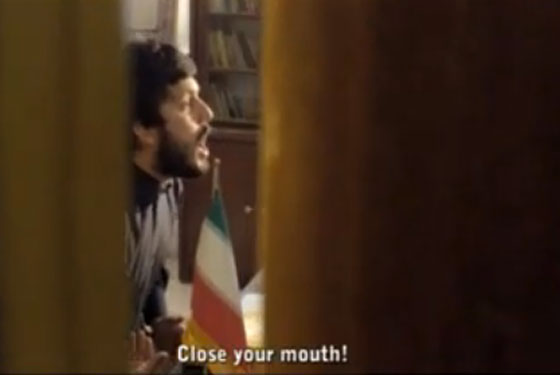
While the first annual Doha-Tribeca Film Festival ÔÇö held this past weekend in the Persian Gulf nation of Qatar and organized in part by Tribeca Enterprises ÔÇö displayed a reasonably broad range of work from all over the globe, we were most intrigued by its spotlight on films from Middle Eastern directors. The region has been experiencing a filmmaking renaissance of sorts in recent years. (To be fair, ÔÇ£Middle EasternÔÇØ means a lot of things to a lot of different people: Some of these filmmakers were Westerners with roots in the Arab world.)
The topics tackled were surprisingly broad, and we were often pleased by the way that blunt politics took a backseat to more traditional virtues like character, style, and story. When politics did emerge, it did so in remarkable ways ÔÇö it could be argued that the most political work in this bunch is an Iranian film about TehranÔÇÖs indie-rock scene, which has been banned in its home country, its director exiled to the U.S. Here are the six films that made a real impression on us, with information on whether you, too, will be able to see them.
1. About Elly (director Ashgar Farhadi, Iran)
Winner of the Best Director Prize at Berlin and Best Narrative Feature at Tribeca earlier this year, FarhadiÔÇÖs unusually gripping film is a drama of alienation shot like an action movie. Depicting how a young womanÔÇÖs disappearance tears a group of friends apart, Farhadi creates a world of mounting accusations and crisscrossing betrayals, then visually throws us into the middle of this emotional tornado.
Coming Soon? Here Films has picked it up for distribution. ItÔÇÖs also IranÔÇÖs submission to the Oscars, so if it picks up a Foreign Film nomination, expect it out sooner rather than later.
Trailer
2. Cairo Time (director Ruba Nadda, Canada/Ireland)
Director Nadda is a Canadian of Arabic descent, so weÔÇÖre not quite sure if this indie drama ÔÇö about a married American woman (Patricia Clarkson) who comes to Cairo and finds herself falling for an Egyptian man (Alexander Siddig) ÔÇö qualifies as a Middle Eastern film. But itÔÇÖs hard not to be charmed by its loving, eye-level depiction of its teeming location, and by the two intensely likable leads.
Coming Soon? ItÔÇÖs been picked up by IFC Films for release in the U.S.
Trailer
3. London River (director Rachid Bouchareb, France/Algeria)
The French-Algerian Bouchareb, who has already been nominated twice for the Best Foreign Film Oscar, offers up an intimate drama about an English woman and an African Muslim man looking for their adult children in the wake of the July 7, 2005 London bombings. What could have become an excuse for politically correct ham-handedness becomes instead an admirably restrained and sensitive look at two seemingly simple characters.
Coming Soon? No U.S. distributor yet.
Trailer
4. No One Knows About Persian Cats (director Bahman Ghobadi, Iran)
Iranian Kurdish director GhobadiÔÇÖs prior films gave us evocative hybrids of neo-realist style and absurdist fancy. Those hallmarks remain in this part-fiction journey through TehranÔÇÖs very-real underground music scene, but he also mixes in pseudo-documentary concert footage, MTV-style cutting, and real narrative urgency to create a surprisingly devastating portrait of a young city bursting with inspiration, creative longing, and danger.
Coming Soon? ItÔÇÖs been picked up by IFC Films for release in the U.S.
5. Pomegranates and Myrrh (director Najwa Najjar, Palestine)
Najwa NajjarÔÇÖs heartfelt Palestinian romance, which won the Best Arab Film award at Doha, works in deceptive ways. Although its central story, about a newlywed couple whose life is upended by the Israeli army, is fraught with political overtones, the film remains fixed ÔÇö both spiritually and visually ÔÇö on its main characters, allowing character psychology to help reveal political realities, instead of vice versa.
Coming Soon? No U.S. distributor yet.
Trailer
6. The Time That Remains (director Elia Suleiman, France/Belgium/Italy)
His wry blending of political symbolism with deadpan, Jarmusch-ian playfulness has already made Palestinian director Suleiman a major figure in world cinema (he also presented a master class at Doha), but his latest ÔÇö a very personal journey through the history of the Arab-Israeli conflict that received a lot of buzz earlier this year at Cannes ÔÇö somehow manages to be both his saddest and funniest film.
Coming Soon? No U.S. distributor yet, but SuleimanÔÇÖs previous films have come out here, so itÔÇÖs probably only a matter of time.
Trailer (French)


